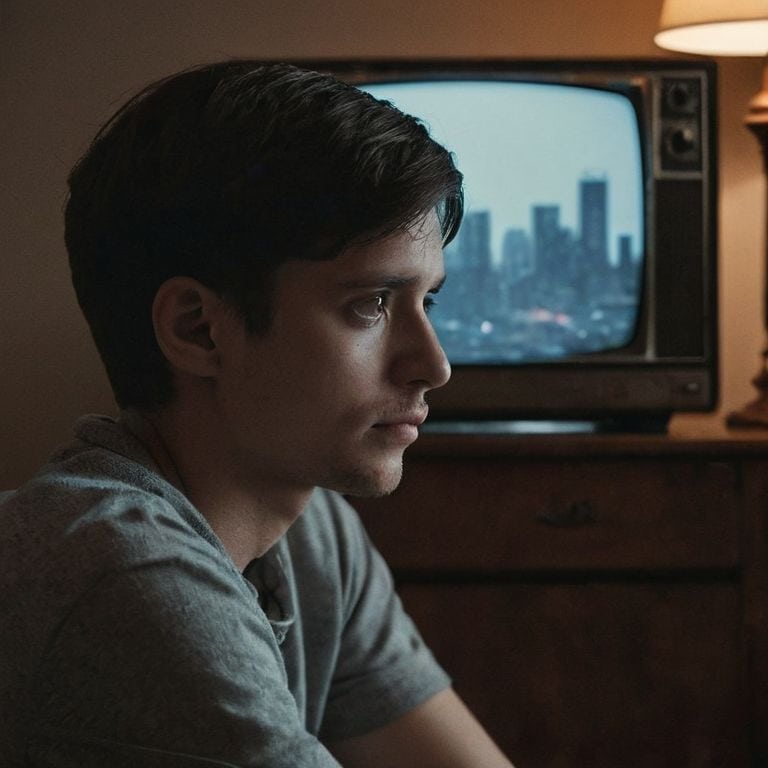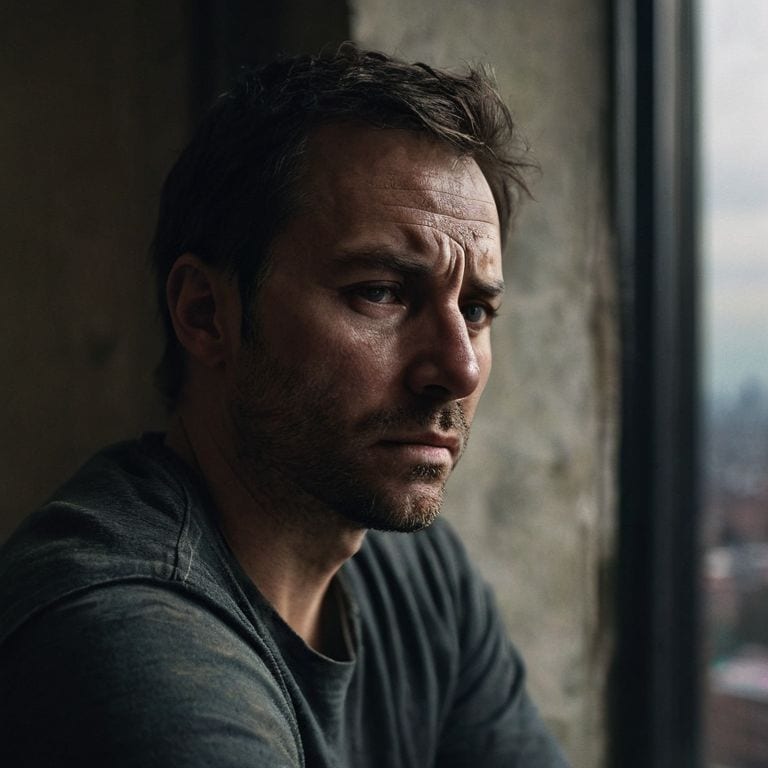I still remember the first time I watched The Sopranos, and how it marked the rise of the antihero in TV. It was like a punch to the gut – a wake-up call that our favorite characters didn’t have to be likable or moral to be fascinating. As a lecturer and essayist, I’ve grown tired of the clichéd analysis that reduces this shift to simplistic trends or demographics. The truth is, our fascination with antiheroes reveals a deep-seated desire to confront the complexities of human nature, to question the binary of good and evil.
In this article, I promise to cut through the noise and offer a no-nonsense exploration of what the antihero phenomenon says about us. I’ll draw from my own experiences as a music journalist and academic to provide experience-based insights that go beyond superficial trends. We’ll delve into the world of TV’s morally ambiguous misfits, and I’ll show you how they reflect our own anxieties and desires. By the end of this journey, you’ll see that the rise of the antihero is more than just a TV trend – it’s a mirror held up to our own complicated humanity.
Table of Contents
Beyond Tvs Moral Facade

As I delve into the world of TV’s morally ambiguous characters, I’m struck by the evolution of TV characters from simplistic, heroic archetypes to complex, multi-dimensional beings. This shift reflects our own societal desire for authenticity and nuance in storytelling. The appeal of flawed protagonists lies in their relatability, allowing us to confront and understand our own moral complexities. By embracing the imperfections of these characters, we’re able to explore the gray areas of human nature, often finding ourselves drawn to the very traits that make them flawed.
The psychological analysis of TV villains, in particular, offers a fascinating glimpse into the human psyche. Shows like “Breaking Bad” and “Narcos” feature antiheroes who embody both captivating and terrifying qualities, making them intrinsically compelling to audiences. This duality speaks to our own darker impulses, revealing a deep-seated fascination with the moral complexity in storytelling that these characters represent.
In this context, the impact of antiheroes on society becomes a crucial aspect of analysis. As we immerse ourselves in the worlds of these characters, we’re forced to confront our own values and biases. The appeal of flawed protagonists serves as a mirror, reflecting our collective anxieties and desires back at us. By examining the antihero archetypes in popular culture, we can gain a deeper understanding of the cultural undercurrents that shape our perceptions of right and wrong.
Evolution of Tv Characters
As I delve into the evolution of TV characters, I’m struck by the gradual shift towards complexity, where morally ambiguous personalities have become the norm. This transformation is a reflection of our own societal values, where the lines between right and wrong are constantly blurred.
The rise of antiheroes has led to a redefinition of what we consider heroic, with characters like Tony Soprano and Walter White dominating our screens. Their stories are a testament to our fascination with the human condition, where flaws and imperfections make for a more compelling narrative.
Moral Complexity in Storytelling
As I delve into the world of antiheroes, I’m struck by the moral complexity that defines their stories. It’s no longer about good vs. evil, but about the gray areas in between, where characters are driven by a mix of motivations that are both relatable and flawed.
The best antihero tales masterfully weave character nuance, making it impossible to categorize their protagonists as purely good or bad. This nuance is what draws us in, allowing us to see fragments of ourselves in these complex, often troubled characters.
Rise of Antiheroes in Tv

As I delve into the world of television, I’m struck by the evolution of TV characters and how they’ve become increasingly complex. The traditional hero, with their straightforward moral compass, has given way to flawed protagonists who embody the nuances of human nature. This shift is particularly evident in the realm of moral complexity in storytelling, where characters are no longer simply good or evil, but rather exist on a spectrum of gray.
The appeal of these flawed protagonists lies in their relatability. We, as viewers, can see ourselves in their struggles and imperfections, making them more human and, therefore, more interesting. The antihero archetypes in popular culture have become a staple of modern television, with characters like Tony Soprano and Walter White redefining the boundaries of what it means to be a hero. Through their stories, we’re able to explore the darker aspects of human nature, and perhaps, gain a deeper understanding of ourselves.
In analyzing these characters, a psychological analysis of TV villains reveals a fascinating insight into the human psyche. By examining the motivations and actions of these complex characters, we can gain a better understanding of the impact of antiheroes on society. This, in turn, allows us to reflect on our own values and morals, and how they’re influenced by the media we consume.
Flawed Protagonists We Love
We find ourselves drawn to flawed characters, not despite their imperfections, but because of them. Their struggles and weaknesses make them relatable, allowing us to see fragments of ourselves in their stories.
The appeal of these characters lies in their humanity, making them more believable and endearing to audiences.
Psychological Analysis of Tv Villains
As I delve into the psyche of TV villains, I’m struck by the complexity of their motivations, which often serve as a dark mirror to our own desires and fears. The most compelling villains are those who exist in a gray area, eliciting both revulsion and sympathy from the audience.
Their manipulative tactics are a fascinating case study, revealing the ways in which they exploit the weaknesses of others to achieve their goals, often by preying on deep-seated insecurities and emotional vulnerabilities.
Unmasking the Antihero: 5 Key Takeaways on TV's Morally Ambiguous Revolution
- Embracing the Gray Area: Why TV’s shift from traditional heroes to complex, flawed characters reflects our own moral ambiguities and the world’s increasing complexity
- Beyond the Byronic Hero: How antiheroes like Tony Soprano and Walter White have redefined the notion of ‘likable’ protagonists and our fascination with their dark, humanizing qualities
- The Power of Relatability: Unpacking how antiheroes’ vulnerabilities and imperfections make them more relatable and human, allowing audiences to confront and understand their own flaws and desires
- Subverting Expectations: The role of satire and social commentary in antihero-centric shows, using humor and irony to critique societal norms and challenge our assumptions about right and wrong
- Reflections of Our Collective Psyche: Why the rise of antiheroes in TV serves as a cultural barometer, revealing our deepest anxieties, desires, and contradictions, and what this says about our current cultural landscape
Key Takeaways: Unpacking the Antihero Phenomenon
As we delve into the world of TV’s morally ambiguous characters, it becomes clear that our fascination with antiheroes reveals a deeper societal desire to confront and understand our own moral complexities.
The evolution of TV characters from traditional heroes to flawed, multidimensional personalities not only reflects a shift in storytelling but also mirrors our own changing perceptions of right and wrong, highlighting the gray areas we often encounter in real life.
Through the lens of psychological analysis, TV villains and antiheroes offer a unique glimpse into the human psyche, exposing our collective anxieties, desires, and the cathartic release we find in watching characters navigate the darker aspects of human nature.
The Dark Reflection
The antihero’s ascendancy in modern television is not just a trend, but a cultural confessional – a testament to our own fascination with the shadows within, and a reflection of the moral ambiguities we’d rather not confront in the daylight of our everyday lives.
Julian Thorne
The Antihero's Reign: A Reflection of Our Times

As we’ve delved into the world of TV’s antiheroes, it’s become clear that their rise is not just a trend, but a cultural phenomenon. From the evolution of TV characters to the psychological analysis of villains, we’ve seen how these complex figures reflect our own moral ambiguities and fascination with the dark side. The flawed protagonists we love to hate and love are a testament to our desire for authenticity and relatability in storytelling. By embracing the grey areas between good and evil, TV shows are giving us a mirror to our own human condition, with all its flaws and contradictions.
So, what’s the ultimate takeaway from this era of antiheroes? Perhaps it’s that the truth is in the nuance, and that by embracing the complexities of human nature, we can create stories that truly resonate with us. As we continue to navigate the ever-changing landscape of television, one thing is certain: the antihero is here to stay, and with them, a new era of empathy and understanding that challenges us to confront our own demons and imperfections. In the end, it’s not just about the characters on screen, but about the reflection of ourselves that we see in them.
Frequently Asked Questions
What does the proliferation of antiheroes in modern TV say about our societal values and moral compass?
Our fascination with antiheroes reveals a societal craving for authenticity, a rejection of simplistic moralities, and a deep-seated fascination with the human condition’s darker corners. It suggests we’re more comfortable with, and perhaps even drawn to, complexity and moral ambiguity, questioning the very notion of traditional heroism.
How do antihero characters influence our emotional investment in a story, and what does this reveal about our own psychological complexities?
Our emotional investment in antihero stories reveals a deep fascination with moral ambiguity, suggesting we’re drawn to characters that embody our own contradictions – a mix of light and dark, good and evil. This complexity resonates, making their journeys feel more authentic, and ours, more relatable.
Can the rise of antiheroes in TV be seen as a reflection of our growing disillusionment with traditional authority figures and institutions?
I’d argue that the proliferation of antiheroes on TV is indeed a symptom of our collective disillusionment with traditional authority figures and institutions. We’re drawn to these flawed, often rebellious characters because they reflect our own mistrust of the status quo and desire for authenticity in a world where institutions are increasingly seen as corrupt or ineffective.
